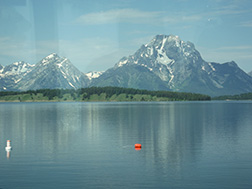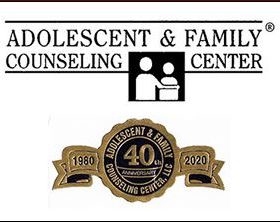
There Is Hope! ©
Click here to download a copy of the article “There is Hope! ©”
“We need to be ahead of CSA criminals”
During his July Senate hearing on his nomination for the FBI Director, Christopher Wray spoke about intervening into the dangers of ISIS seeking American youth recruits. He warned, “Plots don’t happen overnight. They take time to germinate. We need to be in a position where we find them early and stop them early.” … “We need to be ahead of the criminals.”
This assessment and goal is precisely accurate regarding perpetrators who are trolling to find victims for their child sexual abuse. Learning from FBI Director-to-be Wray, I suggest, “Opportunities to perpetrate child sexual abuse don’t happen overnight. They take time to germinate. We need to be in a position where we find them early and stop them early. … We need to be ahead of these child sexual abuse perpetrating criminals.”
Here is an example of one of our past failure in that prevention process. Having listened to the manipulation and sex abuse that had been foisted upon my numerous innocent and vulnerable adult CSA survivors, I have created this ‘confidential admission’ from one of those pedophiles that may make you uncomfortable to read, as he ‘shares’ his planful techniques and implementation.
“My name Aristotle and I am a 35-year-old science teacher in your local middle school. I love teaching science to our 6th grade kids because they are so fascinating, motivating, and able to be engaged. When they are assigned a teacher who is knowledgeable and invested in their subject, utilizes creative and multi-media ways to present material, and remains approachable for discussions and extra help, kids learn better and they succeed. That is how I teach and that is the secret to my superior accomplishments for over 12 years as a teacher. Also, I am the school’s Coordinator for the fall 7th grade science fair projects and I coach the girls’ 8th grade varsity soccer team.”
“There is another reason why I spend most of my time at the school. This is the one reason you can’t tell anybody, because I will vehemently deny it! Ever since I was a 16 and a junior in high school, I have been very sexually attracted to 11 and 12-year-old girls. They are so spontaneous, innocent, full of energy, attractive, unspoiled, and they need an older guy to show them interest and to give them what they want and need! I can really connect with them and engage them in a meaningful relationship, especially with those who do not have a stable home environment and they need a positive male adult role model.”
“Now, as a teacher, coordinator, and coach, I get to spend loads of time with these girls, in the classroom, advising 7th graders in their work on their science fair projects, and coaching the 8th graders on the soccer field and in the locker-room. I must be careful with my behaviors and my words, so nobody else catches onto to my patterns and behaviors, because they wouldn’t understand and I would lose my job and go to jail. But I have gotten very proficient in choosing which 6th grader I connect with each year and then in keeping them apart from each other during their 3 years in our school. During the first month of the school year, I carefully select a somewhat shy, sad-looking, and socially isolated blond girl who has a pretty face, and a slowly developing adolescent body. So very sweet, inexperienced, and fresh! That really turns me on and those characteristics result in an opportunity to spend some after-school time alone with her without her having friends who are hanging around and meddling in our developing relationship. The first time that Helena has difficulty with a science assignment or she seems to have been left behind by the other kids at the end of the class period, I take the opportunity to empathize with her and suggest that she come back after school to talk about how she is feeling. I go slowly, feeling out the situation, careful to avoid getting ahead of the flow and blowing the opportunity.”
“If she does return to my room after school, I make sure that there are no other kids around when I tutor her about that science concept that gave her trouble or when I provide her with support about her peer social isolation. I control myself, stay focused on the task of courting her trust, and keep my hands to myself. I may make a mild complimentary comment about her smile or the color of her hair, but I am careful to say nothing ‘over the top’ and continue to move ahead slowly, reminding myself to be patient. The very process of building our relationship is exciting and energizing for me. A smile during class time. A ‘nice job’ comment on an assignment. Each action is calculated to build our connection and trust.”
“In a second after-school opportunity to build our relationship, I might ask her if she is hungry and may offer her a box of raisons from my desk drawer. I may ask a non-threatening question about her family make-up, slowly getting to know her better. In a third such meeting, I will show Helena that I remember what she has told me previously and provide her some verbal solace and support about something sad she shares with me. I take the opportunity to draw a parallel between us, such as our shared Greek heritage. As she is leaving my room when the after-school bell rings, I may gently put my hand on her shoulder, look her in the eyes, and said, ‘I am glad that you are in my class and you trust me. Thank you.’” . “I must control myself and my own hormones! After she leaves my room, I usually lock my classroom door, go into the attached bathroom, and jerk off, thinking about her sweet smile, her flowing blond hair, and her long legs that I watched under her desk during her class time.”
“As the weeks advance, I share with Helena a story, such as my understanding how difficult it is to move into a new community while in middle school. I fabricate, in a sad voice, ‘The kids were cliquey and they were cruel to me as the new kid in the class.’ Helena says that she is sorry that I went through that pain, because it is what she is experiencing right now. I reach over, gently place my hand onto hers on the lab-counter, and say, ‘I am sorry to hear that you are experiencing the same sadness and rejection that I went through!’
“My heart is racing and I have a boner that I was hiding from Helena with my clip-board. After she leaves, it is time for locking the door and heading to the bathroom again!”
“The next time that I am alone in my classroom with Helena, I tell her, ‘You are very special to me. I haven’t told anybody else, but my dog, Zeus, died during the summer after 12 years and I was devastated. You are making a difficult start to the school year much better for me. You are like my Greek goddess. Thank you.’ Helena smiles and says, ‘I am sorry that your dog, Zeus, died … and I am glad that I was assigned to your class. You are special to me, also.’ I lean over and plant a gentle kiss on her forehead. She smiles, shyly, and blushes.”
“We slowly get more physical during after-school sessions, with a hug and a real kiss. That leads to our making plans for her to come to my apartment this weekend. I tell neighbors she is my niece. I tell her, ‘Nobody would really understand our relationship and they would just be jealous and try to separate us.’ Helena says, ‘I understand … and this is our private secret.’”
“Game on!”
We can and we must do better! In my Chapter 9 of There Is Hope!, I propose these dozen preventative and interventive steps that I have garnered from experience and consultation with experts in the field, working together “For A Better and Safer Tomorrow!”:
- Better prepare our children for life and for adulthood.
- Be honest in our society about who primarily it is from whom we must protect our kids! 3. Utilize in your practice-setting the “Finding You’re A.C.E. Score” to identify folks who have been victimized in childhood and intervene into the myriad of negative health related consequences of having a score of four or higher!
- Increase our scientific, medically-based knowledge of pedophilia and pedophiles.
- Identify potential child sexual abusers before they ever abuse anybody!
- Provide those who self-identify as ‘potential’ offenders with effective treatment.
- Do a more competent screening of folks whom we allow to have access to our kids.
- Early Intervention: Catch the child sexual abuse occurrences sooner.
- Police Departments benefit their communities with the specialized “Sex Crimes Unit”. 10. Prisoners Need Counseling Services.
- Maintain better records of the identity of convicted child sexual abuse perpetrators
and improve inter-state, national, and international access and sharing of those records.
- Require more effective monitoring, closer supervision, and tracking of CSA parolees.
We must be realists and recognize that we will never succeed in eradicating all child sexual abuse … but we can considerably reduce the percentage of our precious kids in the next generation who will be victimized. When we have created an environment in our communities where these recommendations have been implemented, we will have accomplished a tremendous advantage for the future generations of our children, saving millions of kids and adults the pain and burden that had befallen so many victims in the past.
© Herbert Jay Rosenfield 2017
